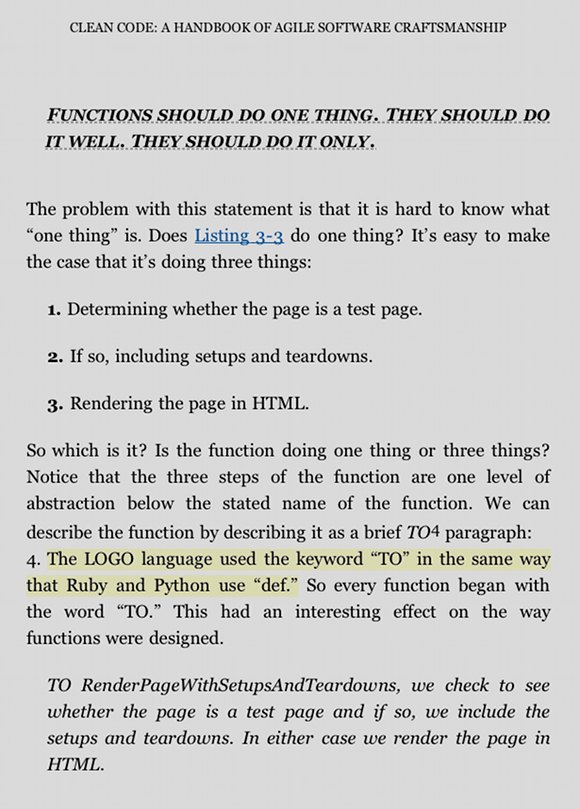LOGO used “TO” like Scala and Ruby use “def”
I ran across the following page in the book Clean Code, and it really caught my attention. In short, there is a programming language named LOGO that apparently used to keyword TO in the same way languages like Scala and Ruby use “def.” This is described near the bottom of the page in the following image, in the area I highlighted:

I’ve never used LOGO, but that sounds like a clever approach, and since I ran across this discussion, I have to say, it’s had an effect on my methods. Every time I type “def,” I think “TO,” and it makes me think a little bit more about how I want to write my method.
For more information on book, check out the Clean Code book.